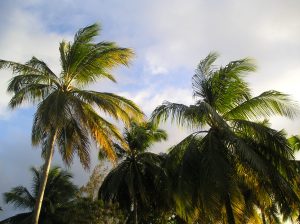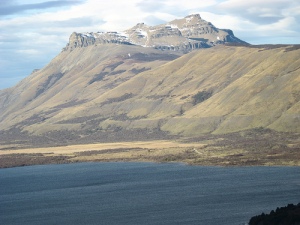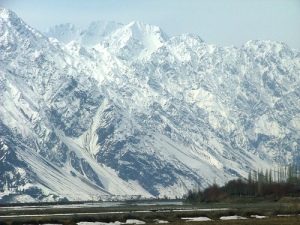
Caribbean storm
Destination: Caribbean and British Guiana
Book: The Middle Passage by V. S. Naipaul
Quotable Thursday quote: I’m the kind of writer that people think other people are reading. V. S. Naipaul
The question is, if a man writes well, does it matter what kind of human being he is?
I delayed reading V. S. Naipaul because although he is always listed as one of the great travel writers, excerpts indicated that he is of that school that dwells on the negative wherever he goes. ( I learned after I read the book, that he is an abuser of women and a racist.)
How, I wondered, could Naipaul be so revered as a writer if his travel writing consistently discouraged going to the places he explored? In order to find my own answer, I would have to read his work.
I bought two books, The Middle Passage (1962), his first travel book, and An Area of Darkness (1964) which relates to his first journey to India. In an introduction to the edition I read, he introduces The Middle Passage as his first travel book, but it was not his first published work. He had already gained a reputation as a writer of fiction by 1962. I unwittingly picked up the two books which drew the most criticism to Naipaul as non-sympathetic to third-world countries.
For those who want to know more about the man behind the writing, Paul Theroux, former friend turned caustic truth-teller,wrote Sir Vidia’s Shadow in 1998. An authorized biography by Patrick French, The World Is What It Is, was published in 2008 and is no less disturbing, according to Theroux himself in this lengthy piece .
In The Middle Passage, Naipaul writes with the observant eye of a sociologist or anthropologist, but without the scientific detachment. The title refers to the route taken by slave ships between Africa and the Caribbean, and tips off his focus in the book. His visit to Trinidad (where he grew up), British Guiana, Suriname, Martinique and Jamaica constantly circles back to race relations. Allegedly, he is comparing the effect of colonizers from Britain, France and Holland on the West Indies and the northern edge of South America. In fact, he pretty much lumps the colonizers together and lines up with them.
Although he refers to his family history–India to Trinidad to England–he does not openly acknowledge the personal prejudice this brings to his observations. In each society he mocks the people in power, but lives with them and complains about hardship, while he claims to be wanting to find out about those on the bottom rung and wondering aloud why they don’t feel more pride. He seeks out connections to slavery and racial division wherever he goes.
The cynicism wears thin, and yet–a big fat “yet”–I don’t believe I have ever read anyone who could as deftly bring to life a character and a setting. I could see the buildings, rooms, and people he described.
With his pompous air of superiority, Naipaul is not a person I would want to dwell with on a desert island . (Particularly after reading about the way he has treated the women in his life.) However, that biting intelligence and felicity of expression would make for an interesting dinner party.
And, oh, yes, I am going to read the second book.
Now please let me know if the kind of person an author is in “real life” affects your enjoyment of his or her work? Would you rather just not know? Or do you think it is important to know something of the life of the author in order to understand the work? Let’s have some exchange of views on this. I know you have an opinion.
Photograph by Vera Marie Badertscher. All rights reserved.













 A Traveler’s Library will be closed for the weekend, preparing for some exciting new things to come.
A Traveler’s Library will be closed for the weekend, preparing for some exciting new things to come.



























